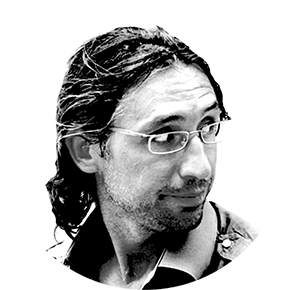Slovenia joined the EU’s Schengen zone today, making a strongly felt border disappear. Only 17 years ago that was the border between Italy – a NATO member, and Yugoslavia – a Socialist Republic. Still today, people is often diffident and language minorities are not always fully supported. But the obligation to show our papers while moving from one country to the other has gone, and other forms of boundary will follow.
I have crossed that border thousands of times in my life. I had relatives, friends and memories on both sides of it. As a kid, I had always perceived the border as a strange kind of folly and I was sure that, sooner or later, people would have got bored of it and let it disappear: without great publicity, simply by abandoning it – mellowly stopping to enforce rules.
Year after year, I went back and forth through the border. Meat was good and unexpensive and my mother sent me to buy it. Once in a while, frontier guards examined my papers and let me wait for some seconds. It happened last week as well. I always felt unreasonably annoyed by this, as if it wasn’t their duty: that land was mine, more than theirs. That passage, that road, that transition between two halves of the same land was part of me.
I had crossed that border in any conceivable way. On a car driven by my grandfather, sitting on a bunch of telephones covered by a blanket (his brother, sister and several friends needed them and had to wait for too long in order to obtain state-provided ones). On a bicycle. On the crossbar of a bicycle driven by a friend of mine. Carrying a friend of mine (or a prospective girlfriend) on the crossbar of my bicycle. With meat in my rucksack, not knowing the exact amount I was allowed to bring back to my mother who’d sent me to the butcher’s, with heartbeat getting faster because I feared to be checked and rebuked by policemen at the customs. At night, when nobody was checking. I had crossed just one half of it, following a path running along no man’s land, and the other half as well, just to prove that it was possible.
 I had crossed it mindlessly, not knowing that a fascinating old man I knew (Andrej Kobal, here in a photo with my grandfather) was not allowed to cross it (probably because, as I recently discovered, he worked for the FBI).
I had crossed it mindlessly, not knowing that a fascinating old man I knew (Andrej Kobal, here in a photo with my grandfather) was not allowed to cross it (probably because, as I recently discovered, he worked for the FBI).
I had crossed it on a train heading towards Ljubljana, exhibiting my prepustnica (a document allowing me to get no more than 10km from the border) and spent one hour around 2AM on a bench, in front of a cell in the police office. I crossed it and entered what we still called Yugoslavia, just to get back home a few weeks later without being sure whether I was allowed to call it Slovenia or not.
These days, a lot of celebrations are being held – official, informal, personal and online ones. Politicians are meeting near Trieste and bloggers at the Mittelcamp.
I’ve had my own private celebration this afternoon, while driving through the checkpoint at Fernetti, on the road connecting Trieste to the first town beyond the border. I prepared my cellphone camera, changed to a low gear, slowed down and got ready to shoot a photo. Then, while approaching the border and preparing to park my car at the side of the road, looking at the modifications already visible in the landscape, I was unexpectedly overwhelmed by commotion. Something that used to be a part of my self simply didn’t make any sense, anymore.



